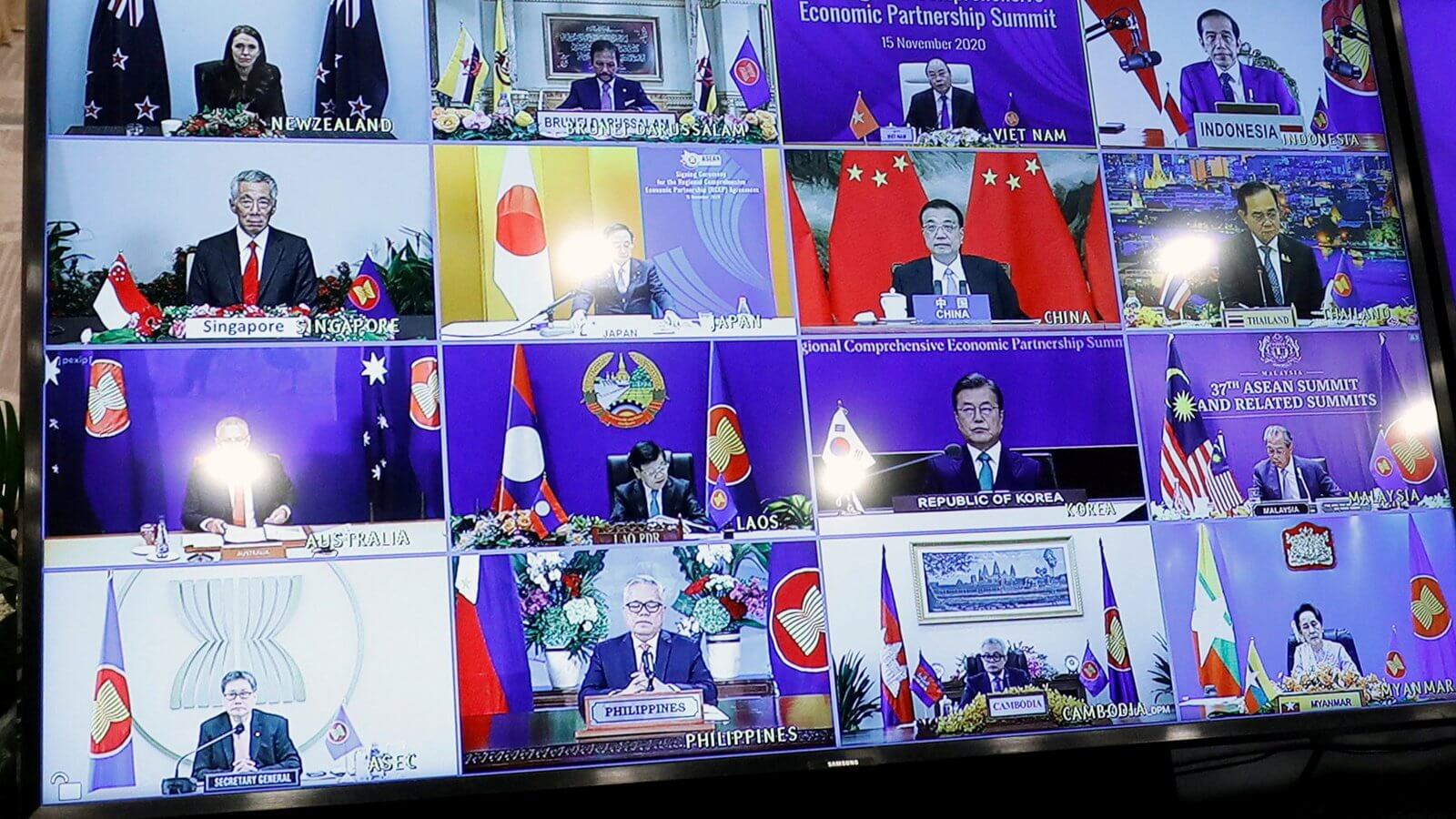In a meeting of the State Council on Tuesday, the Chinese cabinet formulated how to accelerate the domestic implementation of the recently concluded Regional Comprehensive Economic Partnership (RCEP) trade deal, including fast-tracking domestic approval procedures, adopting tariff cuts, and simplifying customs clearances and related procedures.
The meeting was chaired by Premier Li Keqiang, who released a statement on Wednesday urging for more work to be done to “uphold free trade and open up new space for win-win cooperation”. The meeting was also successful in drafting rules for government inspections, specifying the division of tasks among departments, and charting out reduced time frames for the clearance of imported goods and services. “As a participating country, China must make active efforts for the agreement to come into effect. This will demonstrate China’s support for openness, multilateralism and free trade,” Li said.
The meeting statement further added that China also aimed to work towards the liberalization of the open trade of goods, e-commerce, services and investment, while also accelerating the adoption of higher standards and rules in intellectual property protection, and economic and technological cooperation. The State Council also discussed steps that it would have to take with respect to training business associations and enterprises to familiarize them with the new rules.
However, the road ahead is not all smooth for RCEP. India decided to leave the trade bloc, which is considered to be one the major road blocs of the trade deal in maximising its potential because India offers a large market and economic opportunity for RCEP members. New Delhi, however, worries that its market will be inundated with Chinese goods, which will end up harming its domestic industries. Another challenge of the RCEP is that its trading provisions are unenforceable and the deal mentions nothing about economic governance. Despite the agreement, countries would still be able to impose punitive tariffs at whim. Additionally, the agreement will also take up to two years to be ratified by the legislatures of its signatories, thus delaying the implementation even if China expedites things from its end.
Despite the roadblocks though, the Peterson Institute for International Economics (PIIE) estimates that the RCEP, which is the world’s largest free-trade bloc, will boost global GDP by $186 billion a year, with China, Japan, and Korea gaining $85 billion, $48 billion, and $23 billion, respectively. It was signed in November 2020 between China—which has long championed the cause of multilateral cooperation and free trade—and 14 other nations, excluding the United States, with the hope of revitalizing the world economy and aid in its recovery post the COVID pandemic. It encompasses nearly a third of the world’s total economic activity, will reach 2.2 billion consumers, and guarantees openness of trade to a much larger extent than any existing deals. The deal will also completely remove tariffs on up to 90% of trade and further lower existing tariffs.
China to Initiate Implementation of Recently Concluded RCEP Trade Deal
On Tuesday, China decided to accelerate the implementation of trade liberalization measures guaranteed by the RCEP trade deal.
December 3, 2020

4th RCEP SUMMIT, 2020. NGUYEN HUY KHAM/RE
